"It would be wonderful to design more planets," says Winy Maas
Coming up with design concepts for new planets could help solve the problems affecting humanity on Earth, according to architect Winy Maas. Issues such as climate change and habitat destruction can only be solved by thinking about Earth as a holistic design challenge, Maas said. Coming up with alternative planets could help provide insights and The post "It would be wonderful to design more planets," says Winy Maas appeared first on Dezeen.

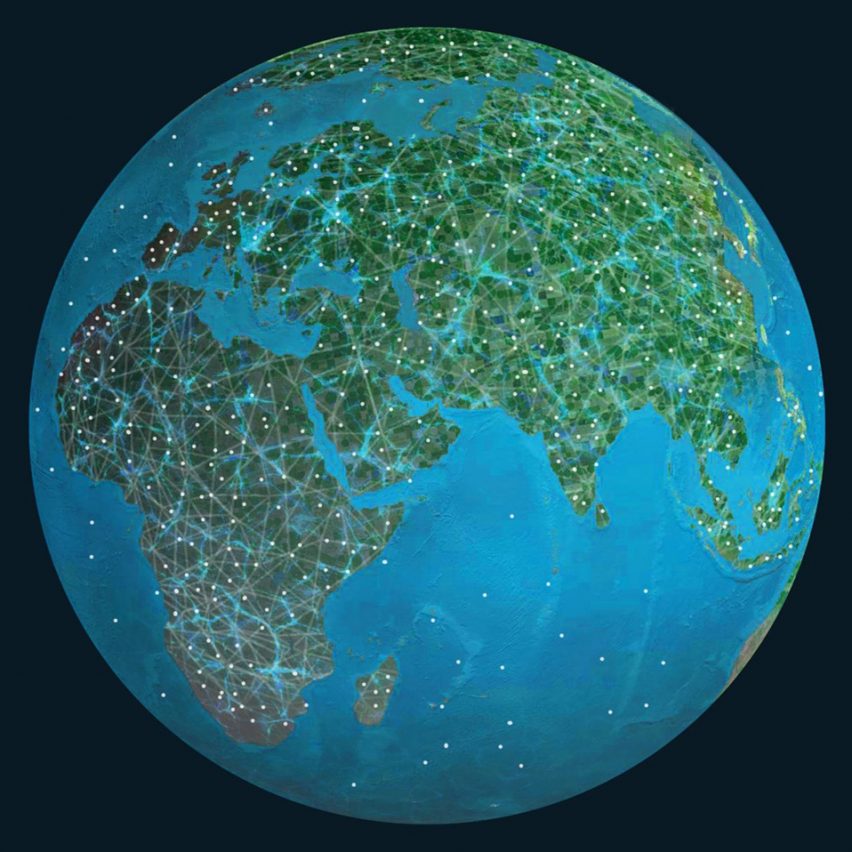
Coming up with design concepts for new planets could help solve the problems affecting humanity on Earth, according to architect Winy Maas.
Issues such as climate change and habitat destruction can only be solved by thinking about Earth as a holistic design challenge, Maas said.
Coming up with alternative planets could help provide insights and solutions that could be applied here, he said during a recent live interview with Dezeen conducted as part of Virtual Design Festival.
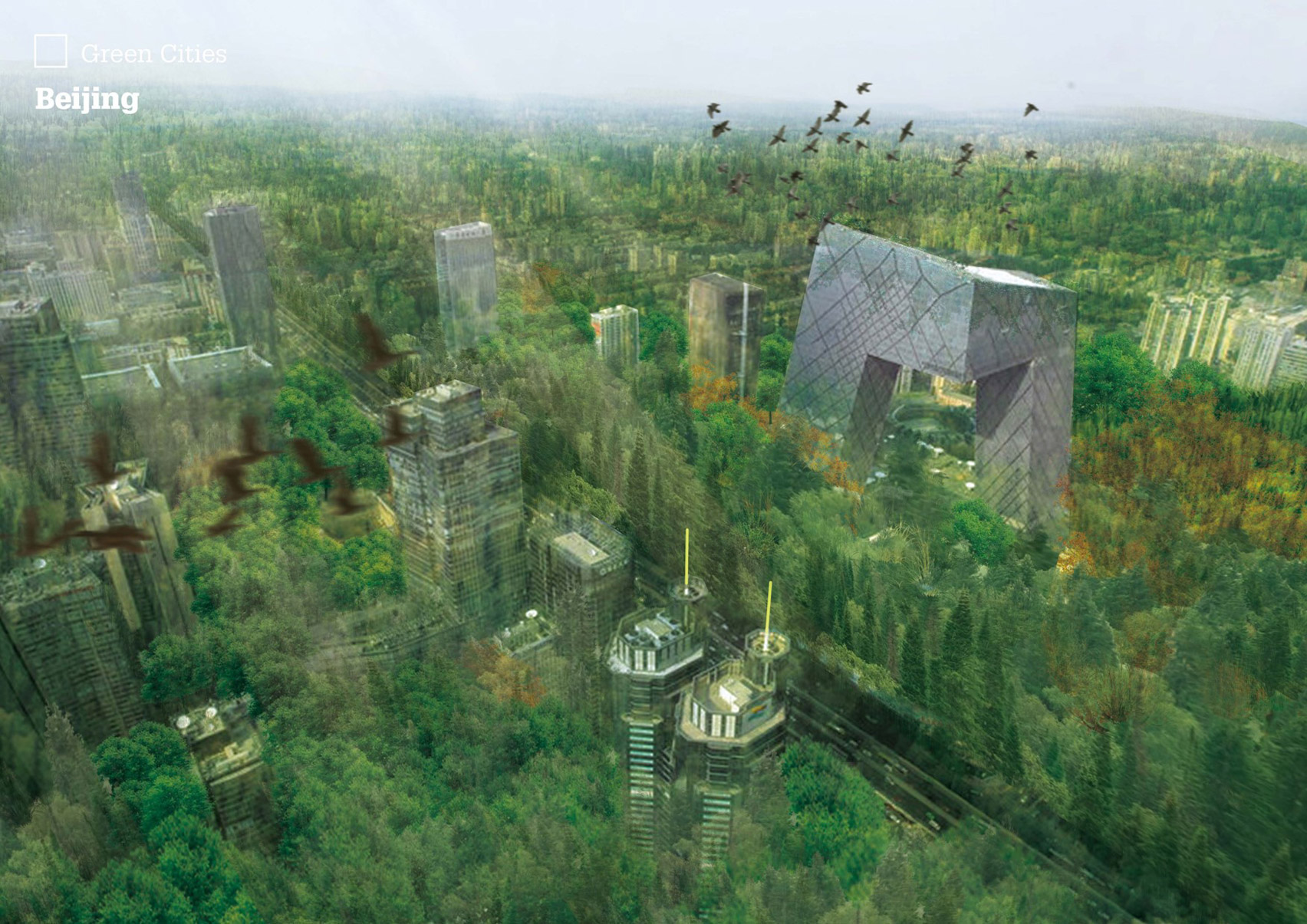
"It would be wonderful to design more planets and to compare them because there are different dreams," said the Dutch architect, who is co-founder of Rotterdam studio MVRDV.
"It would be very useful in that way to fantasise on that because it would mirror what we should do now."
Maas added that the planet needed to be managed in the same way that landscapes are managed in countries like the Netherlands.
"Managing the planet is probably a very human activity," he said. "Managing nature is part of our urbanism."
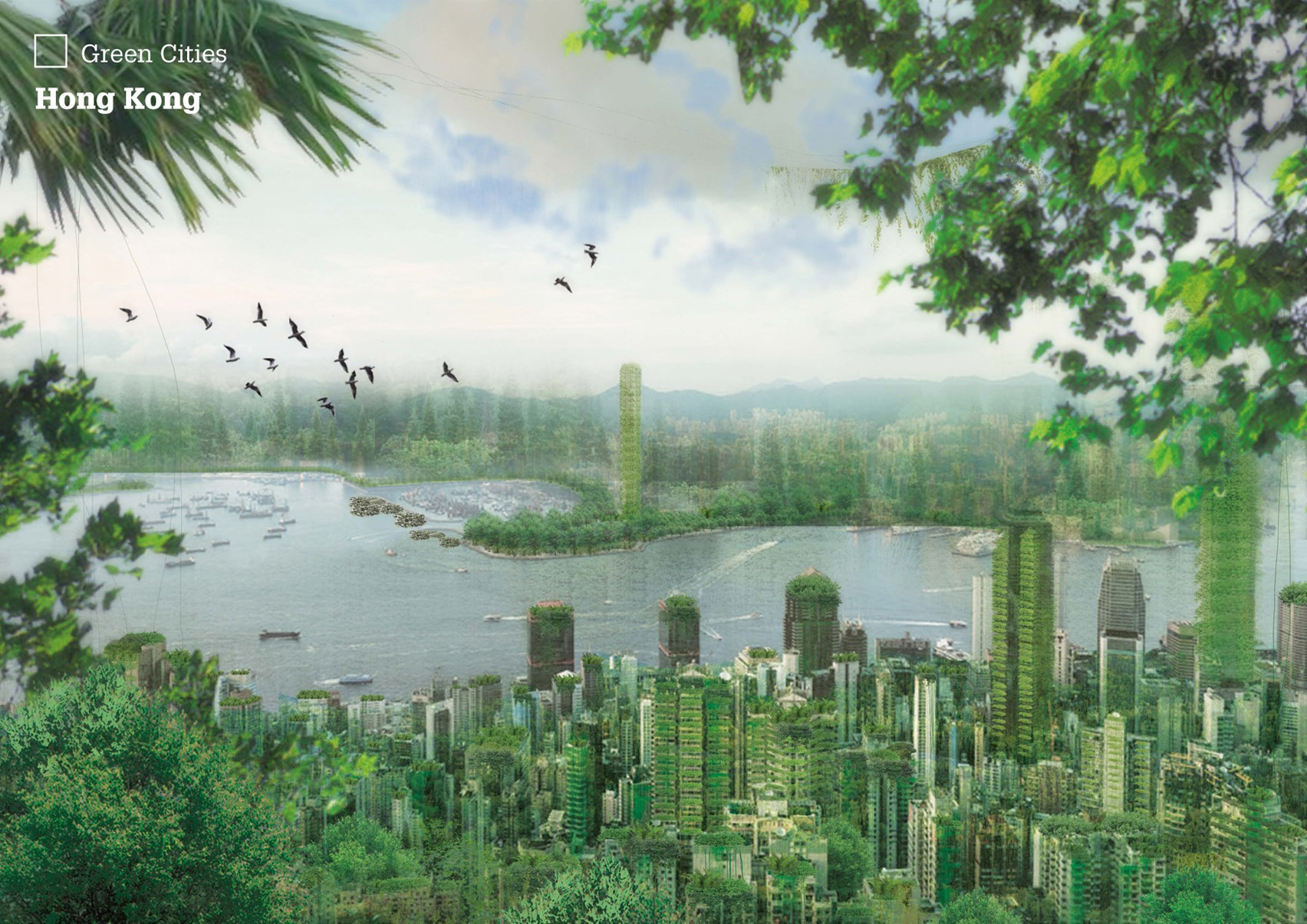
Population grown means that systems need to be put in place to determine where people will live, where food will be grown and which areas will be set aside for wildlife, he said.
"We will be with 11 billion people soon," he said. "We have to manage that growth. Some of us will go to the tundras in order to survive."
"We have to deal with that and with the new densities that [will] occur and also to keep enough emptiness for oxygen and water management."
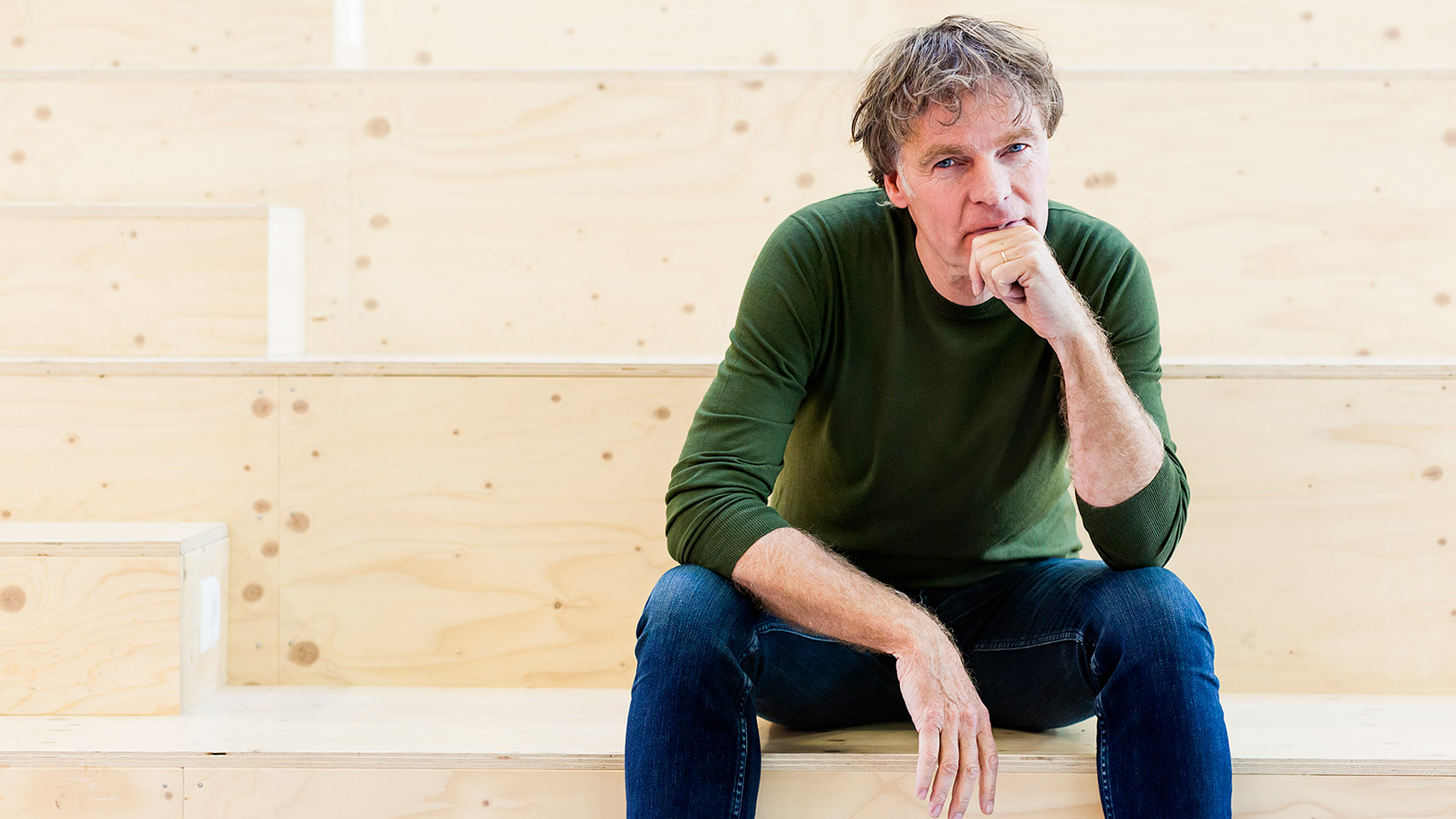
Visionary projects such as transforming the Sahara desert into an area for generating solar power and growing food need to be considered, Maas said.
During the interview, Maas gave a presentation featuring ideas for making cities greener. He revealed a concept called the "Green Dip," whereby cities are turned into havens for nature with sustainable buildings covered in trees and plants.
"I think it would be good to dip our planet in green," he said, "to somehow transform places like Hong Kong into a green dream."
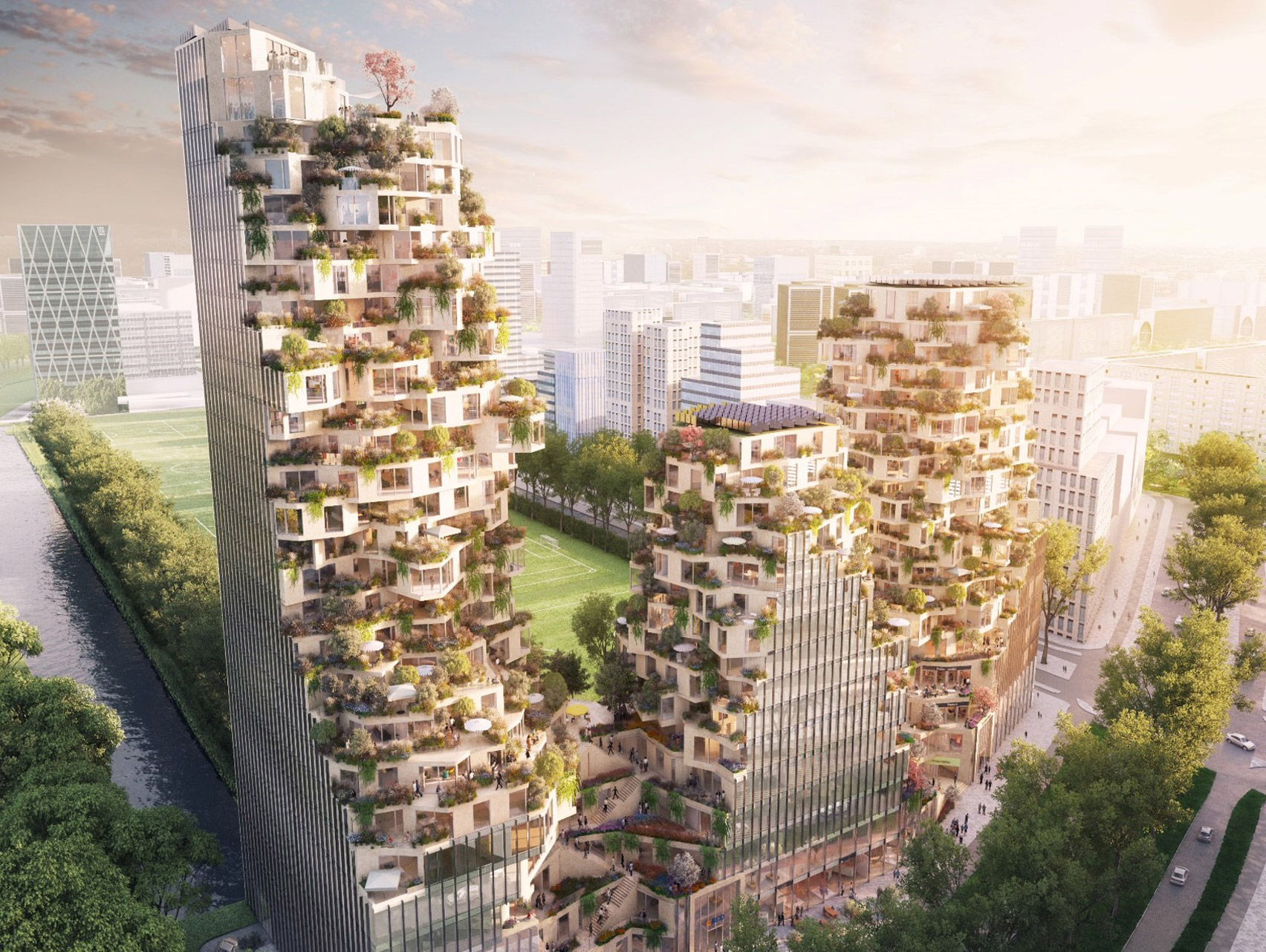
The Green Dip concept will be the subject of a forthcoming book, which will contain data on the amount of carbon dioxide that could be captured by cities built this way.
"If we do that for our current production [of buildings], then already we can have 10 to 12 per cent more CO2 absorption," he said.
Maas founded MVRDV in 1993 with Jacob van Rijs and Nathalie de Vries. Recent projects by the studio include a new building for the Museum Boijmans van Beuningen featuring a rooftop forest, and Seoullo 7017, an elevated highway in Seoul that has been transformed into a park.
The studio's tree-clad Valley residential towers in Amsterdam are nearly complete.
The post "It would be wonderful to design more planets," says Winy Maas appeared first on Dezeen.
